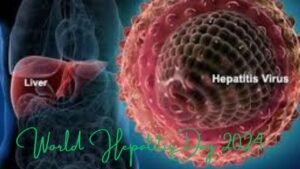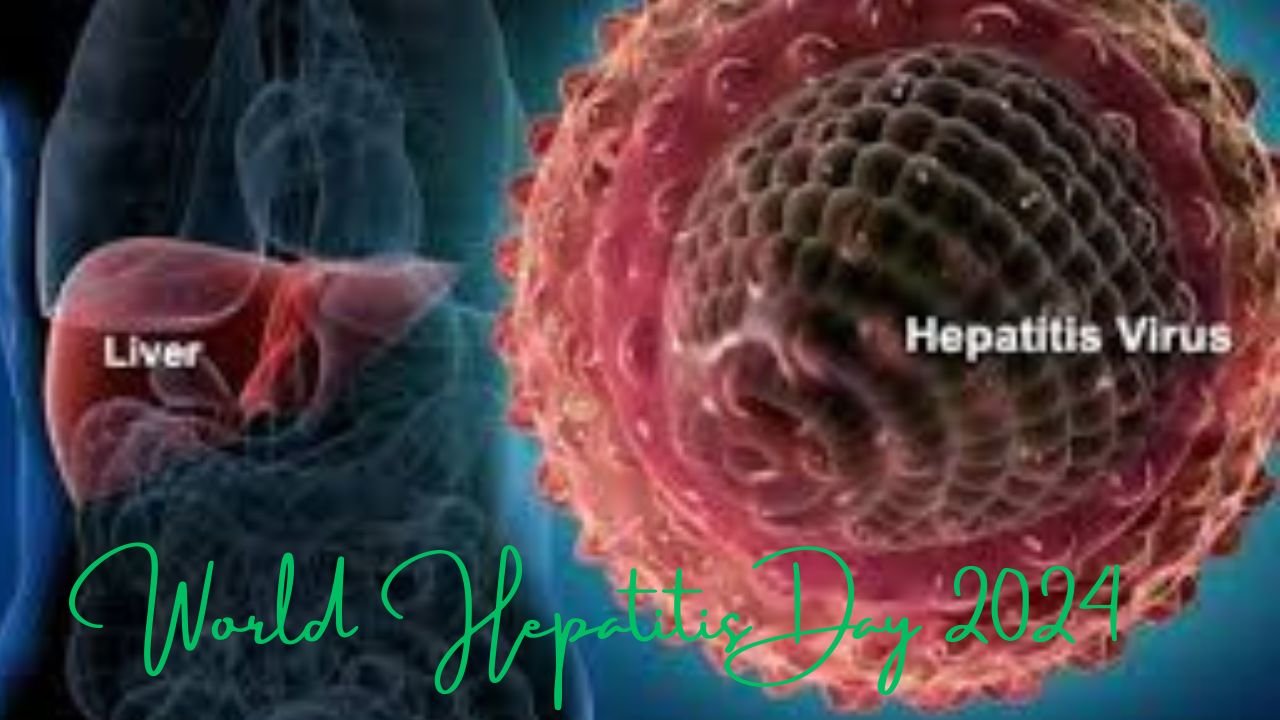World Hepatitis Day 2024: We go over the theme, different causes, symptoms, preventative suggestions, and treatment options for hepatitis.
Hepatitis is an inflammation of the liver. It is usually caused by a viral infection, although it can also be caused by strong alcohol consumption, toxins, some drugs, and certain medical disorders .

The five principal forms of viral hepatitis are Hepatitis A, B, C, D, and E. In this post, we will look at why World Hepatitis Day is recognized. We also go into detail on the many causes, symptoms, and treatment options for hepatitis. We also provide a list of preventive steps you should take for optimal health.
World Hepatitis Day 2024
Every year on July 28, World Hepatitis Day is commemorated to raise awareness of hepatitis, a condition that affects millions of people throughout the world. The day’s goal is to improve the worldwide response to viral hepatitis and promote prevention, diagnosis, The subject for World Hepatitis Day changes each year to highlight various elements of the illness and efforts to combat it. This year’s theme is “It’s time for action”.
page redirect to another page:
Causes
Viral infections
1.Hepatitis A : is caused by the Hepatitis A virus (HAV), which is mainly spread by the consumption of contaminated food or water.
2.Hepatitis B : is caused by the Hepatitis B virus (HBV), which is spread by contact with infected bodily fluids such as blood, sperm, and vaginal secretions.
3.Hepatitis C : is caused by the Hepatitis C virus (HCV) and spreads mostly through blood-to-blood contact.
4.Hepatitis D : is caused by the Hepatitis D virus (HDV), which is a faulty virus that only infects people who have already been infected with HBV.
5.Hepatitis E : is caused by the Hepatitis E virus (HEV), which is spread by feces-contaminated water.
Non -viral causes
1.Alcoholic Hepatitis: A condition caused by excessive alcohol intake.
2.Autoimmune Hepatitis: occurs when the body’s immune system destroys liver cells.
3.Toxic Hepatitis is caused by exposure to certain chemicals, medicines, or poisons.

Signs
Acute Hepatitis
1.Fatigue
2.Flu-like symptoms.
3.Dark urine
4.Pale stool.
5.Abdominal Pain
6.Loss of appetite
7.Jaundice (yellowing of skin and eyes)
Chronic Hepatitis
1.It is possible to remain asymptomatic for many years.
2.Persistent fatigue.
3.Abdominal discomfort.
4.Joint discomfort.
5.Jaundice (at advanced stages).
Treatment
1.Hepatitis A: Usually does not require treatment; recovery is complete with no long-term liver damage.
2.Hepatitis B: Antiviral drugs can assist with chronic hepatitis B, but there is no cure. Vaccines are available.
3.Hepatitis C: In most situations, antiviral drugs will cure the virus. Regular screening and early treatment are critical.
4.Hepatitis D: There is no particular antiviral therapy available. Hepatitis B infection must be managed effectively.
5.Hepatitis E :usually cures on its own; severe cases may necessitate hospitalization.
Preventive measures
Hepatitis A and B vaccinations are helpful at preventing these diseases.
Avoid sharing needles and other drug supplies. Use barrier protection while sexually active to lower the risk of HBV and HCV transmission. Prevent hepatitis A and E.
Maintain safe drinking water and sufficient sanitation.
. Avoid To avoid hepatitis A and E, practice proper hand cleanliness, particularly after using the toilet and before eating. Maintain safe drinking water and sufficient sanitation. Avoid eating raw or undercooked seafood.
. Drink bottled or filtered water, particularly in locations with inadequate sanitation. Limit your alcohol usage to lower your chances of developing alcoholic hepatitis. Avoid pollutants and use caution while using drugs that might harm your liver.
. Regular screening and monitoring for people at risk, particularly for hepatitis B and C, can aid in early diagnosis and treatment. Raise awareness and provide information about hepatitis transmission, prevention, and treatment options.
. These steps can considerably lower the prevalence of hepatitis and its consequences.
